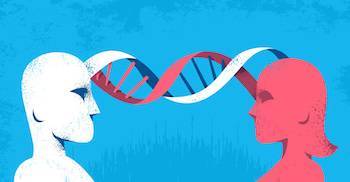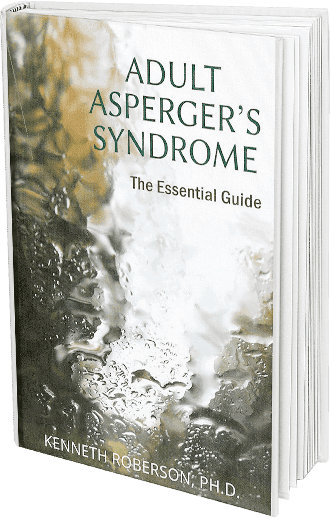
I often get calls from people asking if it’s possible for someone with Autism Spectrum Disorder (ASD) to change. A good portion of these calls are from people who worry that their partner, because he or she has Autism, will never be able to meet their emotional needs. Perhaps, they wonder, it might be better to redefine the relationship as a friendship, realize it will never provide more than that and seek their emotional needs elsewhere.
Over the years I have come to believe that a major reason why people feel such hopelessness is that they’ve either been told or they’ve read somewhere that people with Autism cannot feel empathy and cannot truly love. In my opinion, though, nothing could be further from the truth.
People with Autism Spectrum Disorder love just as deeply as anyone else. The problem isn’t a lack of feeling, it’s how those feelings are processed and communicated. Understanding how this works is the key to finding emotional satisfactions, even intimacy, with your ASD partner.
Emotional Flooding
People with Autism Spectrum Disorder tend to experience emotions in a more intense and more confusing way than others. The smallest triggers can produce huge emotional responses. While a bad day at work might make someone else slightly irritated, for someone with ASD it can be devastating. Similarly, feeling happy can be experienced as intensely and powerfully joyful, and that sort of feeling can be hard to manage for anyone.
To cope with that, adults with ASD have learned to control excessive displays of emotion. That is their way of regulating the swings from one emotion to another, or within emotional states. So, what appears to be aloofness, a focus on thinking rather than feeling, and emotional detachment is often the person’s way of coping with intense and overwhelming feelings.
Personal Awareness
People with Autism Spectrum Disorder tend to spend a lot of time thinking about themselves. As a consequence, they have a hard time picking up on nonverbal cues in interactions with others. Unless they’re told directly, they have difficulty understanding what another person is thinking. They fixate on their own interests and appear like they are self-absorbed and don’t care about others.
Because of this an individual with ASD has a much more difficult time knowing him or herself in relationship to another. It is hard to realize that a loving relationship takes more than paying attention to oneself and requires connecting to what their partner is thinking and feeling, and sharing their own thoughts and feelings as well. This is a typical difficulty that couples experience where one person has Autism.
Relationship Expectations
Because people with Autism Spectrum Disorder have difficulty understanding the thoughts and feelings of other people as well as their own thoughts and feelings, their understanding of love is often different from others. Reciprocal love and affection may not make as much sense as it might ordinarily. Expressions of affection can lead to confusion or the feeling of being overwhelmed. The vocabulary to express affection and love that others understand and use may not be as well developed for someone with Autism. Displays of love and acts of affection may be misinterpreted as having a more significant meaning than was intended.
In many cases, the problem with couples where one person has Autism Spectrum Disorder often centers around their differing expectations of intimacy. Both will give and offer love in the ways that they can, and it is when those ways differ too much, with no seeming resolution to these differences, that the relationship appears untenable.
Can it Work?
Simply put, it can, provided that both partners are willing to put in the effort it will take to bridge the differences that can at times seem vast.
With help from someone, such as an ASD psychologist, who is knowledgeable about how to help someone develop an understanding of another person and what it takes for someone with Autism Spectrum Disorder to be in an intimate relationship, achieving successful intimacy is a completely realistic goal.




